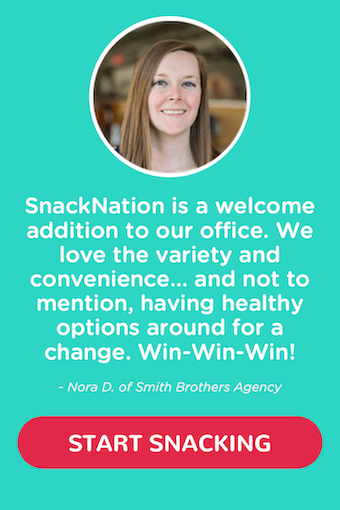
So you want to know how to be an Executive Assistant (EA)?
Well, we’re not surprised! Executive Assistants enjoy some of the most diverse, exciting, and challenging careers on the market—careers that attract students and professionals with a wide range of skills and interests. The often entrepreneurial, always essential, role of Executive Assistant involves:
- Making key business decisions
- Having a major voice in the company
- Guiding strategic direction
And that’s just a sampling of some common Executive Assistant responsibilities.
Are you ready to learn even more about the modern Executive Assistant?
Below, we’ve outlined everything you need to know about how to be an Executive Assistant. Most of these findings came from our State of the Executive Assistant Report (or SOTEAR, as we refer to it many times below). There’s something in the report for experienced Executive Assistants as well as future Executive Assistants who haven’t even graduated college yet. We made the report just for you; enjoy!
The best way to create, track, and monitor the suggestions in this post is with productivity software like monday.com.
Who are Executive Assistants?

Executive Assistants come from a diverse range of prior positions and educational backgrounds. While making our State of the Executive Assistant Report, we studied Executive Assistants’ past jobs and college majors. We didn’t see any standout subject matter trends that might give aspiring Executive Assistants tips on what subject to major in or what jobs to take. However, we did observe that most Executive Assistants enter their roles with lots of experience.
More than half (54%) of the EAs we surveyed to create the report had 11 or more years of experience; 23% of respondents had 20 or more years of experience. In other words, Executive Assistants have been around the block a few times, and they know exactly what they’re doing.
(PS – Get more sh*t done with The Assist — the #1 free weekly newsletter made for assistants by assistants.)
What Exactly do Executive Assistants do?
It depends. No really; it does.
An Executive Assistant’s duties depend on the company, executive, or executive team. An Executive Assistant at a public relations firm might spend the days planning event after event, while an Executive Assistant at a non-profit might spend the days calling government officials.

According to one definition from Merriam-Webster, an Executive is “one that exercises administrative or managerial control, and an Assistant is “a person who assists, or gives usually supplementary support or aid.” So an Executive Assistant, essentially, helps the Executive manage the company.
In our SOTEAR, we highlight a manifesto from Executive Assistant trainer and expert Adam Fidler. His manifesto captures the essence of the Executive Assistant role:
“I’m a neutral and independent adviser to my Executive who enables the day-to-day management routines that enhance the effectiveness of my boss, and the organization as a whole. I operate as a business manager in my own right – and I am an integral part of the management team.”
In summary, a definitive answer evades us because executive assistants pretty much do it all. If you happen to be an executive assistant yourself, you can get the intel and support you need to do it all and do it well by signing up for The Assist, a free weekly newsletter designed specifically to help EAs do their best work.
Read more about some more specific Executive Assistant duties below.
Executive Assistants: The Vital Stats
Salary
One study we found during the making of our SOTEAR says that the average Executive Assistant earns just over $63,000 a year. (That’s higher than the Social Security Administration’s latest national average.)
And remember: When it comes time to accept that Executive Assistant position you’ve been dreaming of, you can always negotiate your salary. So really, the range of EA salaries you will encounter is probably as extensive as the range of EA duties you’re likely perform in your long career.
Duties

A modern Executive Assistant’s duties include, but are not limited to:
- Calendaring
- Scheduling
- Organizing
- IT troubleshooting
- Managing payroll
- Designing office layouts
- Onboarding/offboarding
- Handling communications
- Travel coordinating and business travel management
- Event planning
How to Be an Executive Assistant

If you have ambition and you’re willing to spend time building up your experience and your resume, then you have the makings of an outstanding Executive Assistant. Now you probably want to know what specific skills you’ll need to make it. We’ve got you covered; that’s a major topic of our SOTEAR.
Absolutely Essential Skills
Master multi-tasking: According to our SOTEAR, the most desired, most used, and most sought after Executive Assistant skill is the ability to multitask. (20% of our respondents cite multitasking as the most important skill for an EA to master.)
- Hone your skills: We recommend filling the “empty space” during some tasks with simple tasks. Instead of daydreaming when someone puts you on hold during a phone call, open a spreadsheet and do some data entry.
Learn to communicate: Communication skills also topped our respondents’ list of the most important Executive Assistant skills to master.
- Hone your skills: There are tons of ways to improve your communication skills, but here’s one simple rule veteran EAs know to use all day, every day: Keep it real. Honesty and openness can get you far.
Preferred Skills
Big-picture thinking, the ability to process information and make decisions in the context of your company’s long-term goals
- Hone your skills: Network within your company. Listen closely at every meeting you attend. Ask questions until you truly understand what’s going on and what role you play in the project at hand.
Prioritization, the ability to allocate your time, and your Executive’s time, to the tasks and activities with the biggest impact on your mission.
- Hone your skills: Keep your company mission and objectives top of mind at all times. Read through them each day if that helps. Weigh all your prioritization decisions against these objectives.
Anticipation, the ability to know what your executives want before they do.
- Hone your skills: Ask your executives lots of questions. Observe their reactions to different types of situations. Take note of how they behave when they’re stressed, happy, angry, and sad. Apply your findings to make their lives easier.
Emotional Intelligence, the ability to understand and manage the feelings of yourself and others.
- Hone your skills: Listen, pause, and consider. Follow those steps when interacting with your colleagues, and your emotional IQ will get stronger over time.
Troubleshooting and problem-solving, the ability to apply a core set of skills to resolve almost any issue that comes up.
- Hone your skills: Build your problem-solving skills through mental modeling. Imagine real-life scenarios playing out in low-pressure environments. (That’s what you want to do during your lunch break, right?) Picturing how you would solve a problem when there’s no pressure from an actual problem builds your troubleshooting muscles. When a real issue comes along, you’ll be ready.
(PS – Get more sh*t done with The Assist — the #1 free weekly newsletter made for assistants by assistants.)
Everything Else You Should Know: Top Lessons from Our State of the Executive Assistant Report

These top lessons from our SOTEAR cover everything else you need to know to launch or continue flourishing in your Executive Assistant career.
- Executive Assistants enjoy better than average salaries, but they feel like there’s a glass ceiling. As mentioned above, the average Executive Assistant earns just over $63,000 a year. Executive Assistants still want to make more money (who doesn’t?), and see negotiating for a higher salary as a top challenge.
- EAs are a loyal bunch. More than a third (34%) of respondents have been working at their current company for more than 5 years. According to the Bureau of Labor Statistics, the average American worker has been at their current job for 4.2 years, and this number drops to just 2.8 years when you look at workers aged 25-34.
- Most Executive Assistants are doing the job that entire teams of assistants used to do. 52% of respondents directly support 3 or more executives, and the vast majority don’t have a team to whom they can delegate.
- Candor is essential, but still difficult for Executive Assistants. Executive Assistants said that one of the most effective ways to deal with a difficult or demanding executive is to “be upfront with them and communicate your frustration” (32%). However, feedback is still a challenge. 32% still don’t feel comfortable giving their boss negative feedback.
- The scope of the Executive Assistant role has expanded. While calendaring, scheduling, and organization are still a fundamental part of the job, being an Executive Assistant now means performing tasks formerly relegated to IT, Operations, and even HR. The scope of the role now resembles that of the Chief of Staff.
- Executive Assistants aren’t taking enough vacation. Executive Assistants that take more vacation reported being less stressed out and happier at work, yet a full 40% take just 10 or fewer vacation days per year – well under the average allotment.
- Executive Assistants love that their work keeps them on their toes. When asked what part of their job they enjoy most, the top answer was “new challenges” (33%).
- Executive Assistants are not getting enough feedback, but not for lack of facetime. 30% said they only get feedback on how to improve at work once a year, yet 56% of respondents have a face-to-face meeting with their boss every week
- Executive Assistants are always on call. Respondents told us that “disconnecting outside of work” is the most difficult thing to do in the role compared to 2-3 years ago. 52% of Executive Assistants are expected to be on call outside of work hours. Executive Assistants who are expected to be on call outside of work hours are nearly 12% less happy with their bosses than Executive Assistants who are not expected to be on call. 28% of respondents said their boss contacts them outside of work hours or on weekends with requests at least twice per week.
Do you have any advice for aspiring Executive Assistants? Share your wisdom in the comments below!








Amazing
Good information here.